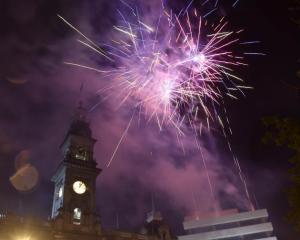Political turmoil in Britain is ensuring political pundits hedge their bets as to which party will be able to form a government after the May 7 election.
Prime Minister David Cameron is introducing some stern policies aimed at cutting back on the amount the country spends on benefits by requiring the unemployed to either work for the dole or forcing sickness beneficiaries to apply for work or face losing their entitlements.
Labour leader Ed Miliband is facing what all Labour leaders face around the world - political division within his caucus and party. For some reason, Labour in England and New Zealand, and Labor in Australia, seemingly thrive of late on pushing a self destruct button at the most inconvenient times.
Labour faces a drubbing in Scotland, where the Scottish National Party looks certain to take the majority of seats north of the border, forever changing the nature of politics in Scotland.
The Scottish independence vote was narrowly defeated by hollow promises of some sort of self governance. Those broken promises by the Conservatives have turned Scottish voters against the Establishment.
Meanwhile, the Liberal Democrats are to face what coalition partners fear in both New Zealand and Australia: political oblivion. The Lib Dems wanted to show they could be a party of government but are facing such a dramatic slump in support as a result that they are in deep trouble.
They are now barely ahead of the Greens and average about 8% in the polls. Even their ability to defend their ''fortress seats'' is in doubt as leader Nick Clegg faces a strong challenge to hold even his own seat.
The rogue element in the election is Ukip and its leader Nigel Farage. While the party and Mr Farage have both suffered slumps in personal approval ratings in recent weeks, the party only has to win a handful of seats to make the election impossible to call before polling day.
Since the global financial crisis in 2008, the faith of voters in political leaders and those running institutions has collapsed. In Britain, the trend was exacerbated by political and banking scandals which have deepened public cynicism.
The latest HSBC banking scandal will only add to the troubles of Mr Cameron. The Tories are inextricably linked to the HSBC problems and are also feeling the heat from donations to the party being linked to some of the richest people in Britain.
Recently, the Church of England stepped into the election debate by urging a ''fresh moral vision'' from politicians. In a letter encouraging congregations to vote, the House of Bishops says it does not endorse a political party but the message has been labelled left wing by some commentators and naive by others. The letter's policies were seen as a combination of the Green Party, SNP and perhaps a bit of Labour.
Last year saw profound shifts in British politics few predicted and most politicians have been left nervous about their future. A new era of multi party politics has arrived and social media, most familiar to three million or so young people about to vote for the first time, offers new campaigning tools and new opportunities for political engagement.
Whichever party connects best with the Facebook generation will reap the benefits; but no one can yet judge which party that will be.
No party is said to have a clear trump card when it comes to political slogans. The Tories will claim the economic recovery as a win and will play up the electorate's perceived inability to see Mr Miliband as prime minister. Labour will focus on the cost of living and the health service.
The most likely outcome for the 2015 election is another hung parliament and another coalition with neither the Tories nor Labour winning an overall majority. But with just over two months to go, and so many influences at work, there will be few yet willing to call a result. Britain is preparing for the most unpredictable election of recent times.











